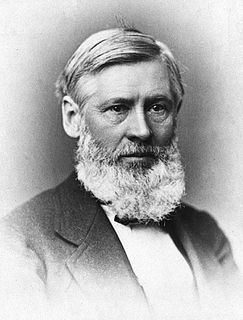A Quote by Asa Gray
Natural selection is not the wind which propels the vessel, but the rudder which, by friction, now on this side and now on that, shapes the course.
Related Quotes
Now let me step back from the problem and very generally discuss natural selection and what we know about it. I think it is safe to say that we know for sure that natural selection, as a process, does work. There is a mountain of experimental and observational evidence, much of it predating genetics, which shows that natural selection as a biological process works.
The growth of our knowledge is the result of a process closely resembling what Darwin called 'natural selection'; that is, the natural selection of hypotheses: our knowledge consists, at every moment, of those hypotheses which have shown their (comparative) fitness by surviving so far in their struggle for existence, a competitive struggle which eliminates those hypotheses which are unfit.
We've got to control our own energy. Now, not only oil and natural gas, which we've been investing in; but also, we've got to make sure we're building the energy source of the future, not just thinking about next year, but ten years from now, 20 years from now. That's why we've invested in solar and wind and biofuels, energy efficient cars.
Quantitative work shows clearly that natural selection is a reality, and that, among other things, it selects Mendelian genes, which are known to be distributed at random through wild populations, and to follow the laws of chance in their distribution to offspring. In other words, they are an agency producing variation of the kind which Darwin postulated as the raw material on which selection acts.
Group selection and individual selection are just two of the selection processes that have played important roles in evolution. There also is selection within individual organisms (intragenomic conflict), and selection among multi-species communities (an idea that now is getting attention in work on the human microbiome). All four of these levels of selection find a place in multi-level selection theory.
Natural selection, the blind, unconscious, automatic process which Darwin discovered, and which we now know is the explanation forthe existence and apparently purposeful form of all life, has no purpose in mind. It has no mind and no mind's eye. It does not plan for the future. It has no vision, no foresight, no sight at all. If it can be said to play the role of the watchmaker in nature, it is the blind watchmaker.
Creationists argue that natural selection is only a negative process, and therefore cannot create anything. Chopra argues that skepticism is only a negative process, and therefore does not lead to knowledge. Both are wrong for the same reasons. They ignore the generation of diversity and new ideas upon which natural selection and skepticism acts. Weeding out the unfit is critical to both - natural selection allows evolution to proceed, and skepticism allows science to advance.
True, I talk of dreams, Which are the children of an idle brain, Begot of nothing but vain fantasy, Which is as thin of substance as the air, And more inconstant than the wind, who woos Even now the frozen bosom of the north, And, being anger'd, puffs away from thence, Turning his side to the dew-dropping south.
The truth is that all civic and social change is friction. Politics is friction. The only way you can bend the arc of history is to create that kind of friction, which is something that makes most people incredibly uncomfortable but which, for whatever reason, because of my upbringing or because of my genetics, is something that doesn't bug me.
The human brain became large by natural selection (who knows why, but presumably for good cause). Yet surely most "things" now done by our brains, and essential both to our cultures and to our very survival, are epiphenomena of the computing power of this machine, not genetically grounded Darwinian entities created specifically by natural selection for their current function.
































